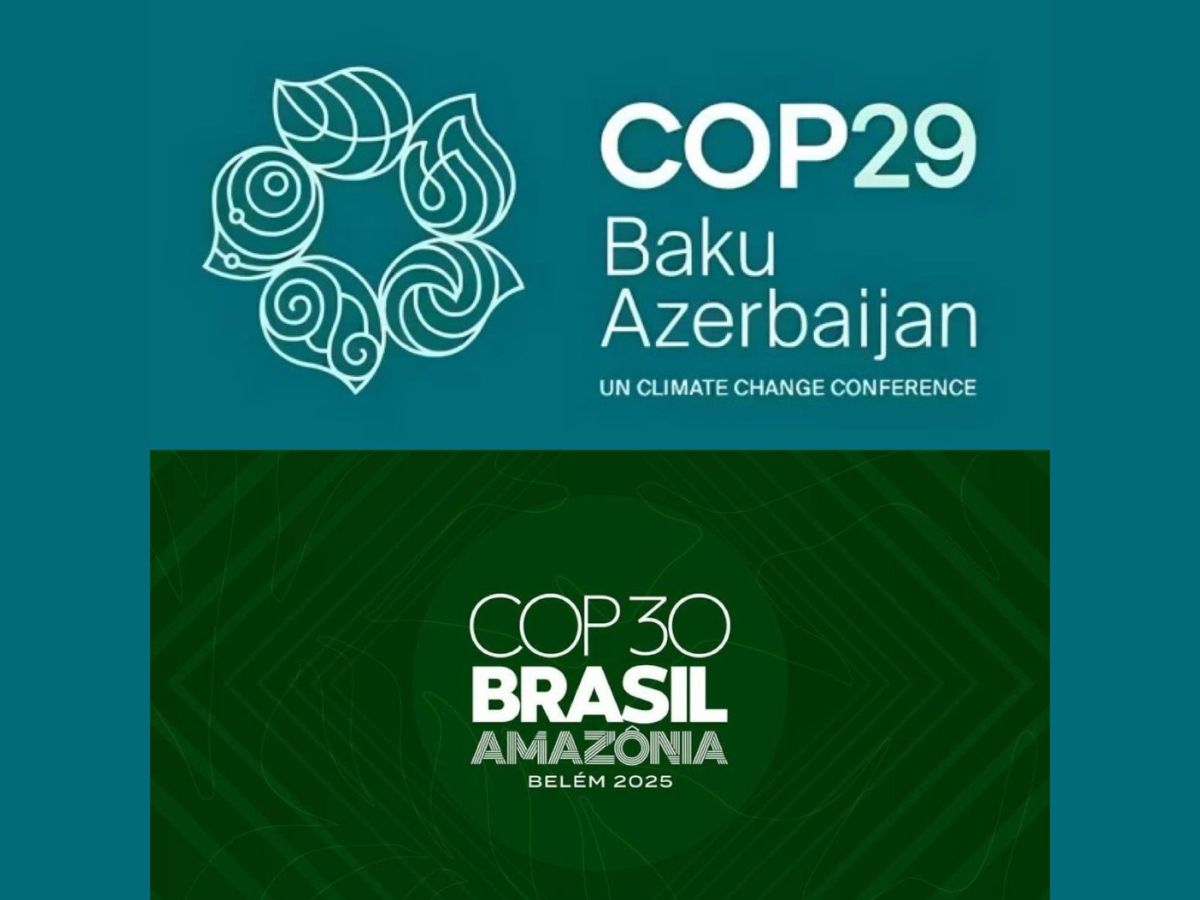BAKU, Azerbaijan, November 22. COP29, widely regarded as a symbol of success, stands in stark contrast to COP30, which is up against a wall with a slew of logistical, financial, and coordination headaches. While the Baku-hosted summit earned global recognition for its scale, strong organization, and high-impact decisions, COP30 has so far been overshadowed by delays, political frictions, and operational setbacks, a disparity that raises serious questions about the future reliability and effectiveness of global climate negotiations.
Political expert Shahla Jalilzadeh told Trend that COP29 in Baku will go down in the books as a real feather in the cap for climate conferences, a shining example that will be hard to top. She emphasized that the summit delivered the long-awaited breakthroughs the world had been anticipating for a decade, marking a decisive step toward the global transition to a “green economy.”
"The long-delayed breakthrough on Paragraphs 2 and 4 of Article 6 of the Paris Climate Agreement, adopted in 2015, finally arrived in Baku, where they were fully agreed upon and ratified 9 years later. For the first time in 15 years, a new global climate finance target of $300 billion was set, replacing the $100 billion goal adopted in 2009 and officially reached in 2022. Another major milestone was the announcement of the next post-2035 climate finance target of $1.3 trillion, one of the most significant outcomes of the summit.
Baku also hosted an intergovernmental agreement to operationalize highly integrated global carbon markets, while the Loss and Damage Fund was fully institutionalized. Several key documents were signed, and major commitments were made: the United Kingdom pledged to reduce its carbon emissions by 81 percent from 1990 levels by 2035, and Australia announced it would allocate $32.5 million to the global Loss and Damage Fund to support the most vulnerable communities affected by climate change.
Together with the creation of the Baku Adaptation Roadmap, these achievements mark a decisive turning point in the global fight against climate change. And although COP30 did not deliver significant progress, the establishment of a Tropical Forest Protection Fund and new emissions-reduction commitments from 11 countries remain noteworthy developments," she noted.
Jalilzadeh pointed out that COP29 was a shining beacon of organization, a far cry from the COP event in Brazil, which ended up with fire.
“The COP26 summit in Glasgow, United Kingdom, was marked by protests involving more than 100,000 people. COP21 in Paris, France, was overshadowed by a terrorist attack and a state of emergency, while COP15 in Copenhagen, Denmark, became known for the mass arrest of over 900 climate activists. COP24 in Poland struggled with severe weather that created serious logistical disruptions. Yet during COP29 in Baku, even officials and media representatives from openly anti-Azerbaijani circles could not point to a single organizational flaw,” she said.
The political expert emphasized that the decisions adopted at COP29, crucial for the future of humanity, also showcased Azerbaijan’s strong leadership, effective management, and rising international credibility.
“The unanimous decision by all parties to formally express gratitude to Azerbaijan for the high-level organization of COP29 speaks for itself. Former U.S. President Joe Biden called the agreement reached at the summit a ‘historic result’ and congratulated both the Azerbaijani COP29 presidency and participating parties. COP29 further reinforced Azerbaijan’s image as a safe, peace-driven, and results-oriented negotiation platform. It was precisely this effective diplomacy that paved the way for brotherly Türkiye to be chosen as the host of the next COP,” he added.
Political expert Kazim Kazimov told Trend that COP29, hosted in Baku, “etched its name in golden letters” into the history of global climate action, and that the striking contrast with COP30 across every parameter is now evident to the entire world.
“COP29, held in Baku one year ago, set a benchmark for organization, participation, and the weight of its decisions. Its official priority, rapid and sustained emission reductions, clearly shaped the tone of global climate diplomacy. The most important achievement was that, after intense negotiations, COP29 succeeded in securing a concrete annual financing commitment of at least $300 billion for developing countries. This was the first time that long-debated financial responsibility in the climate process was finally tied to a specific, measurable figure,” he said.
Kazimov added that another key achievement of the Baku summit was the adoption of Article 6 of the Paris Agreement as a binding decision, fully operationalizing international carbon markets.
“This decision not only advanced climate policy but also opened a fresh pathway for global investment flows,” he noted.
He made it clear that COP29 was a shining example of wide-ranging, inclusive participation, bringing together everyone from governments and investor groups to cities and civil society organizations, which really raised the bar for coordination quality.
“For this reason, I describe COP29 as a summit that was result-driven, systematic, and built diplomatic trust. Unfortunately, COP30 presented an entirely different picture,” he said.
According to Kazimov, the COP30 meeting in Belem, Brazil, was a real can of worms, plagued by logistical and organizational hiccups that threw a wrench in the works and seriously derailed the overall process.
"Many delegates voiced frustration over soaring accommodation costs, with some hotel prices surpassing $1,000 per night, a level that not only strains budgets but also limits meaningful diplomatic participation. Alongside financial concerns, security issues grabbed global headlines when a fire forced the evacuation of the summit venue, abruptly halting discussions and breaking the momentum of negotiations. The biggest deadlock, however, remains climate finance: at least $300 billion in annual funding secured at COP29 has yet to materialize at COP30, leaving nearly half of the talks stuck in limbo. With many countries failing to submit updated national climate commitments, the space for coordination and consensus has narrowed even further," he said.
Kazimov pointed out that while the COP30 agenda is as broad as the ocean and ambitious as a mountain climber, trying to tackle such a wide array of issues without a clear roadmap could throw a wrench in the works of its implementation.
“COP29 marked a high point in global climate diplomacy, whereas COP30 is unfolding as a difficult stress test, challenged by logistics, finance, infrastructure, and strained diplomatic negotiations,” Kazimov explained.
Kazimov pointed out that while COP29 laid the groundwork for trust among nations, COP30 is finding it tough to keep that ball rolling.
“It’s too early to deliver a final verdict before the summit concludes. But the facts indicate that if COP30 aims to deliver concrete outcomes, it must reinforce the foundation laid by COP29 with real, workable mechanisms, especially on finance, carbon markets, and the fulfillment of commitments. At this stage, there are still more questions than answers,” he concluded.
Stay up-to-date with more news on Trend News Agency's WhatsApp channel







